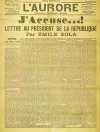 A Jewish officer in the French army, Alfred Dreyfus was falsely convicted of treason in 1894. When officers discovered that the evidence against Dreyfus was false—and that he was most likely a victim of anti-Semitism—they covered it up. Writer Émile Zola exposed the scandal by publishing in a newspaper an open letter titled “J’accuse.” Zola was tried and convicted of criminal libel but fled the country, which was divided by the scandal. What happened to Dreyfus and Zola? Discuss
A Jewish officer in the French army, Alfred Dreyfus was falsely convicted of treason in 1894. When officers discovered that the evidence against Dreyfus was false—and that he was most likely a victim of anti-Semitism—they covered it up. Writer Émile Zola exposed the scandal by publishing in a newspaper an open letter titled “J’accuse.” Zola was tried and convicted of criminal libel but fled the country, which was divided by the scandal. What happened to Dreyfus and Zola? Discuss
Source: The Free Dictionary
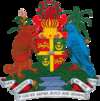 This is a national holiday commemorating
This is a national holiday commemorating 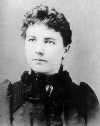 Wilder was the American author of a classic series of children’s books based on her childhood. Born in Wisconsin after the Civil War, she traveled with her pioneer family throughout the Midwest by covered wagon for years before settling in the Dakota Territory. As a farmer and mother she struggled for years. Her first novel, Little House in the Big Woods was not published until 1932, when she was 65. How many of her books, which spawned a popular TV show, were published after her death?
Wilder was the American author of a classic series of children’s books based on her childhood. Born in Wisconsin after the Civil War, she traveled with her pioneer family throughout the Midwest by covered wagon for years before settling in the Dakota Territory. As a farmer and mother she struggled for years. Her first novel, Little House in the Big Woods was not published until 1932, when she was 65. How many of her books, which spawned a popular TV show, were published after her death?  Change ringing is the art of ringing a set of tuned bells in a series of mathematical patterns called “changes.” Differing from many other forms of bell ringing in that no attempt is made to produce a conventional melody, change ringing is performed by groups the world over. However, it remains most popular in the setting where its modern form developed during the 17th century: English church towers. Why was church bell ringing prohibited during World War II?
Change ringing is the art of ringing a set of tuned bells in a series of mathematical patterns called “changes.” Differing from many other forms of bell ringing in that no attempt is made to produce a conventional melody, change ringing is performed by groups the world over. However, it remains most popular in the setting where its modern form developed during the 17th century: English church towers. Why was church bell ringing prohibited during World War II?  Though considered the founding document of New Zealand as a nation, the Treaty of Waitangi has been the subject of much debate since it was signed by representatives of the British crown and Maori chiefs in 1840. It gave Britain control of New Zealand while recognizing the native inhabitants’ land rights. However, the English and Maori texts differed, leading to many controversies over its stipulations. In 1913, one of the treaty documents was restored after having been partially eaten by what?
Though considered the founding document of New Zealand as a nation, the Treaty of Waitangi has been the subject of much debate since it was signed by representatives of the British crown and Maori chiefs in 1840. It gave Britain control of New Zealand while recognizing the native inhabitants’ land rights. However, the English and Maori texts differed, leading to many controversies over its stipulations. In 1913, one of the treaty documents was restored after having been partially eaten by what?  This exuberant celebration of snow and ice has been held since 1950 in
This exuberant celebration of snow and ice has been held since 1950 in 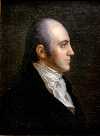 Before he shot and mortally wounded Alexander Hamilton in the famous duel, Burr was a well-regarded lawyer and politician, having served in the American Revolution and held various offices, including that of senator. But after Hamilton used his influence to thwart more than one of his political aspirations, Burr—then vice president—challenged him to a duel and won. Later, he was tried for and acquitted of treason for a plan to seize what areas of North America, possibly to create a new country?
Before he shot and mortally wounded Alexander Hamilton in the famous duel, Burr was a well-regarded lawyer and politician, having served in the American Revolution and held various offices, including that of senator. But after Hamilton used his influence to thwart more than one of his political aspirations, Burr—then vice president—challenged him to a duel and won. Later, he was tried for and acquitted of treason for a plan to seize what areas of North America, possibly to create a new country? 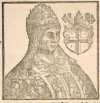 Modern antipopes are religious leaders who reject the popes selected by the Roman Catholic Church and instead claim the title for themselves, sometimes developing their own religious infrastructure. The Roman Catholic Church regards these claimants as schismatics and heretics. Unlike historical antipopes, most modern antipopes have few followers and are usually not recognized as serious claimants to the papacy. Who are some of the modern antipopes?
Modern antipopes are religious leaders who reject the popes selected by the Roman Catholic Church and instead claim the title for themselves, sometimes developing their own religious infrastructure. The Roman Catholic Church regards these claimants as schismatics and heretics. Unlike historical antipopes, most modern antipopes have few followers and are usually not recognized as serious claimants to the papacy. Who are some of the modern antipopes?